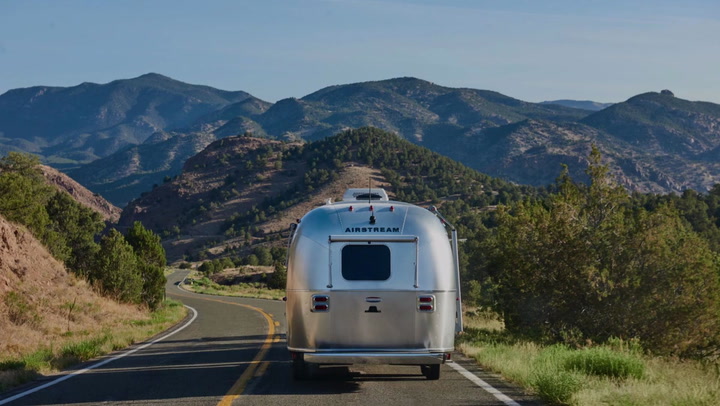1. Expert RV Vacation Tips
2. Cost of Renting an RV
3. Essential Packing List
4. Planning Your RV Trip
5. Choosing the Right RV
6. Where to Rent Your RV
7. Additional Considerations
Hit the open road with confidence this summer, thanks to these RV vacation tips from experts.
Fact checked by
Olivia Young
If you’re renting an RV for the first time, you probably have a lot of questions: How much does it cost to rent an RV? What kind of RV or trailer should I rent? What should I pack? Thankfully, we have the answers to your RV questions, so you can hit the road with confidence this summer. We spoke to Paige Bouma, vice president at RV Trader, and Megan Buemi, head of content at RVshare, to get their expert advice on everything from RV rentals to road trip packing lists. With people across the country gearing up to explore the great outdoors, here’s what you need to know to join them.
How much does it cost to rent an RV?
RV travel can be very affordable; however, it ultimately depends on your preferences. One of the most common questions from first-timers is, “how much is it to rent an RV?” While there’s no clear-cut number, there are several factors to consider. First, you have to factor in the RV rental cost, which varies based on the vehicle type, destination, and trip length. According to RVshare, “the average booking is $150 per night and $1,000 for a four- to five-night rental.” Other costs include insurance, gas, campground fees, food, and more. Bouma emphasizes that it’s wise to map out where you’ll stay overnight ahead of time, allowing you to park at free lots or at friends’ homes.
What should I pack for my RV trip?
There’s a fine line between overpacking and not having what you need. Consequently, like with any trip, you’ll want to pack clothing and supplies necessary for your activities. Buemi advises to “pack thoughtfully,” recommending that renters consult with the RV owner about what they provide for their renters, such as linens and cookware. Furthermore, Bouma stresses the importance of having a tool kit and first-aid kit on hand for emergencies. If you’re traveling with kids, don’t overlook games, craft supplies, movies, kitchen supplies, and of course, graham crackers, marshmallows, and chocolate for making s’mores.
How should I plan my RV trip?
Bouma points out that effective planning is a great way to engage the whole family in the trip. Therefore, research your route and destinations in advance, plot where you’ll stay overnight (and make reservations for popular campgrounds), plan your meals, and ensure you have enough water in your tank and gas in your generator. Additionally, determine where you’ll have hookups for water and power.
What RV should I rent?
Choosing the right RV for your vacation can seem daunting due to the variety of brands and models available. Let factors such as budget, the number of travelers, the destination, and the trip length help narrow down your options. Decide whether you prefer a motorhome or a towable trailer (and check if your car can tow the chosen trailer). Buemi suggests assessing what matters most to you, such as pet-friendliness, number of beds, a full kitchen, and enjoyable outdoor space.

Where should I rent my RV?
Once you know what type of RV you want and what you’re bringing on your trip, the next step is to find a reliable rental source. Fortunately, several convenient options are available for securing your next RV. Peer-to-peer sites like RVshare and Outdoorsy connect RV owners directly with vacationers seeking rentals. Additionally, Cruise America boasts an impressive inventory at numerous rental centers across the U.S. and Canada. If you find yourself enjoying the RV lifestyle, consider visiting RV Trader to purchase your own camper.
What else do I need to know before renting an RV?
When renting an RV, you’ll need to decide whether to drive it, tow it, or have it dropped off at your destination. If driving or towing such a large vehicle isn’t appealing, some RV rentals offer delivery to your desired campground. Upon first-time renting, ensure you receive a walkthrough from the owner. Buemi advises, “Setting up an RV at a campground may be new to you, so ask the owner for detailed instructions on all aspects of their rig, including how to use electrical hookups, open the awning, dump the tanks, and more.” Additionally, ensure you have insurance and roadside assistance in place for any unforeseen circumstances. RVshare provides comprehensive and collision coverage of up to $300,000, alongside free 24/7 roadside assistance and towing and tire service.
Bouma also notes that drivers can often forget how tall their RVs are, particularly with air conditioning units located on top. Therefore, be cautious when driving under structures with low clearance, such as fast-food drive-thrus.





